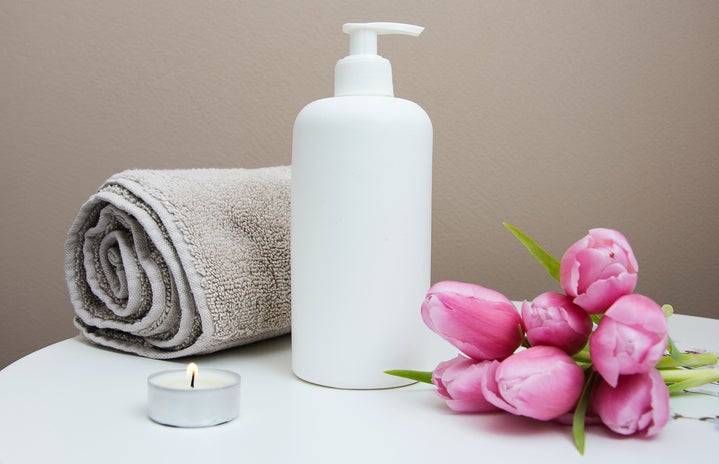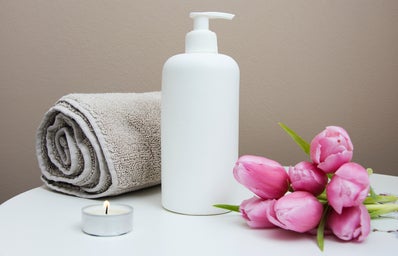Politics have always been personal! On March 7, 2019, Senators Dianne Feinstein (D) and Susan Collins (R) introduced the Personal Care Product Safety Act to Congress. The Personal Care Product Safety Act (PCPS) aims to ensure the safety of all Americans who use personal care products. WHICH BASICALLY MEANS THE BILL IS LOOKING OUT FOR EVERY SINGLE ONE OF US! In the United States, it is completely legal for cosmetic companies to include harmful, untested ingredients in their products and not list them on the label. Read below to learn 10 reasons why the PCPS NEEDS to be passed RIGHT NOW, and what you can do about it:
- Health issues are on the rise
-
Recent studies have revealed that personal care products greatly increase the likelihood of health complications such as “allergic reactions, hair loss, asthma and cancer.” One study conducted by Harvard researcher, Russ Hauser, found that lotions, nail polishes and similar products contain parabens and phthalates. Parabens and phthalates are harmful chemicals that greatly disrupt the human hormonal system. The chemicals are known to cause reproductive problems such as birth defects and breast tumors.
- We use personal care products every day
-
The average U.S. woman uses 12 personal care products per day, amounting to about 168 DIFFERENT chemicals! Conversely, the average U.S. man, although using fewer personal care products, is also exposed to about 85 different chemicals per day. It is important to note that “personal care products” encompass more items than simply lipstick, mascara, foundation and blush. Shampoo, shaving cream, deodorant, lotion and sunscreen are personal care products as well!
- Nothing has changed since 1938
-
1938 was the last time the Federal Food, Drug And Cosmetic Act (FDCA) was updated to regulate the cosmetic industry! The FDCA gives the Federal Drug Administration (FDA) the authority to monitor and regulate food, drug and cosmetic safety. Although the law stipulates that all drugs must get premarket approval, cosmetic products are under no such obligation. It is up to individual companies to demonstrate and test the safety of their products. Basically, that means it is completely legal for a cosmetic company to call its products “natural” and “safe” even if they are not.
- Cosmetic companies are free to use any chemicals
-
3,000 different chemicals are currently used in American cosmetics, but only a whopping 10% have been tested for safety. The FDA has stated that “The law does not require cosmetic companies to share their safety information, including consumer complaints, with the FDA. FDA’s data on cosmetic adverse effects are limited because reporting is voluntary.”
- No FDA recall privilege
-
The FDA has no authority to forcibly remove a product containing toxic ingredients from the market. The only way that a product is recalled from the market is if a manufacturer or distributer voluntarily removes specific products from the market.
- Few chemicals are banned in the US
-
The European Union has banned over 1,400 chemicals from personal care products, yet the United States has only banned 11! The United States ban list does not purely include chemicals. An example of a weird restricted substance includes “bovine parts.” While a questionable regulation includes the restriction of any products that contain more than 65 parts per million mercury. The maximum levels of mercury allowed in fish is .5 parts per million!
- $62 billion personal care industry
-
The simple fact is that the cosmetic industry still uses many harmful chemicals in their products. The self-regulation of a $62 billion industry defies common sense. Big companies whose products reach a large group of consumers must have minimum safety standards put in place! Consumers should have a high level of confidence in the safety of the products they buy on a consistent basis.
- Increased Safety
-
The PCPS calls for more power to be given to the FDA to regulate chemicals used in personal care products throughout the nation. PCPS would force cosmetic manufactures to register ALL the ingredients found in their products—ensuring that they can will no longer be able hide behind their labels. PCPS also aims to expand the FDA’s authority, to pull toxic products off store shelves and require the FDA to review at least 5 cosmetic ingredients per year for safety.
- Communication is key
-
While we wait for the PCPS to (hopefully!) pass Congress, it is important to let your representatives in Congress and the House of Representatives know that you support better personal care product regulation! It can be daunting to call or e-mail your representative, but contacting them really does make a huge difference. Texting the number 528-85 “BetterBeauty” will send a pre-written email to your representative showcasing support for better beauty laws! I did it, and it was an easy way to show my support for the bill.
- Quick Solutions
-
The Environmental Working Group’s cosmetic database is an invaluable tool to assess the safety of products currently in your everyday routine! Simply go to https://www.ewg.org/skindeep/ and search for products ranging from sunscreen to nails to fragrance. In addition, you can download apps such as GoodGuide and Think Dirty to search for healthier products on the go.
WE ALL DESERVE TO ENJOY A POPPIN’ HIGHLIGHT OR CLASSIC RED LIP WITHOUT HAVING TO WORRY ABOUT THE POTENTIAL HEALTH RISKS ASSOCIATED with the use of highlighters or lipsticks! Every time that we use cosmetics products, we are taking the risk that the chemicals inside will negatively affect us later in life! THIS STOPS TODAY! Currently, the PCPS is awaiting consideration by the Senate Committee on Health, Education, Labor and Pensions.



